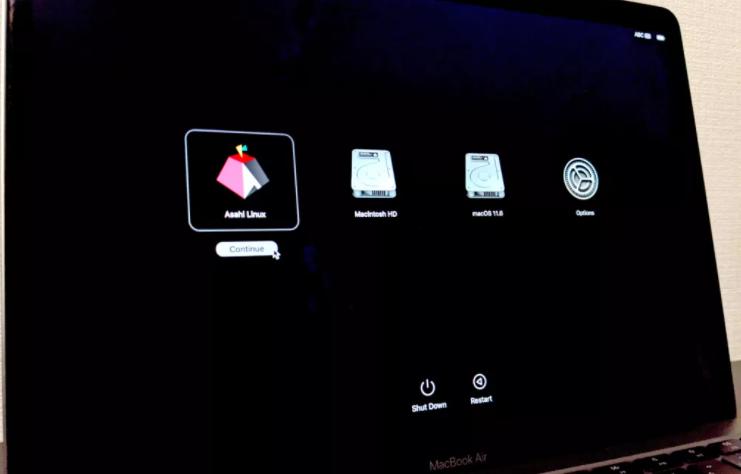IT House March 20 news, Asahi Linux is a research for Apple Silicon macs organizational group, March 18, Asahi Linux announced the success of running on the M1 MacBook Air laptop, and opened up Asahi Linux download and installation.

Asahi Linux has released its first public alpha version on the official blogging platform, for developers and advanced users, with support for OTA upgrades.
To install Asahi Linux, users need to meet the following requirements:
M1, M1 Pro, or M1 Max computers (except Mac Studio)
macOS 12.3 or later, logged in as an administrator user
At least 53GB of free disk space (desktop installation). Asahi Linux Desktop requires 15GB, but the installer reserves an additional 38GB of disk space in macOS to avoid breaking macOS updates.
Connect to the Internet and the installer will download 700MB ~ 4GB of data.
For users who meet the requirements, only need to enter the following command in the terminal to start the installation:
curl https://alx.sh | sh
IT House learned that as the first alpha version, Asahi Linux still has many bugs that users who want to try it out.
Supported features:
Wi-Fi
USB2 (Thunderbolt Interface)
USB3 (Mac Mini Type A interface)
Screen (no GPU)
NVMe
The lid of the notebook opens and closes
Power button
Built-in display (frame buffer only)
Built-in keyboard/touchpad
Displays the backlight on/off
Battery information / charge control
RTC
Ethernet (desktop)
SD Card Reader (M1 Pro / Max)
CPU frequency switching
Unsupported features:
DisplayPort
Lightning interface
HDMI on macBook
Bluetooth
GPU acceleration
Video encoding and decoding is accelerated
Neural engine
CPU deep idle
Sleep mode
camera
Touch Bar
Known issues:
If Wi-Fi doesn't work, try turning it off and on in the Network Management menu
If the headphone jack doesn't work or only one channel is working, try restarting.